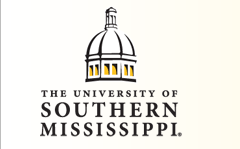Date of Award
Summer 8-2007
Degree Type
Dissertation
Degree Name
Doctor of Philosophy (PhD)
Department
Speech Communication
Committee Chair
Dr. Keith Erickson
Committee Member 2
Dr. Lawrence Hosman
Committee Member 3
Dr. Richard Conville
Committee Member 4
Dr. Gene Wiggins
Abstract
Despite recent scholarly endeavors in leadership and crisis communication as well as numerous actual instances o f tragic or embarrassing and incompetent crisis leadership, little research has addressed the question: How did leaders effectively influence constituents’ reality and reactions associated with a crisis? Consequently, the purpose of this study was to investigate, identify, and explain the rhetorical features and strategies enacted by constituents as they attempted to manage the meaning (Pearce & Cronen, 1980) of a community crisis. In particular, this study investigated the means by which Chief Influence Agents® as leaders affected the process of making sense o f events, shared experiences, and related with constituents in an attempt to cope with and survive a potential community crisis. Community leadership discourse during an actual meeting convened to consider the impacts o f the declaration of war by President G. W. Bush on Iraq in 2003 was the specific setting for the investigation of social influence and crisis management.
The study concluded chief influence agents as leaders should use natural rhetorical devices such as dialogic discourse to prime enthymemes, frame constituents’ reality, and direct the collective construction o f a new social reality for community development, crisis management, and community sustainability. In particular, the art of framing discourse is a useful rhetorical technique to address significant topics, construct master themes, assign and manage meaning, and co-create a meaningful and acceptable rhetorical vision for shared reality.
Copyright
2007, Carolyn Kyyhkynen Lee
Recommended Citation
Lee, Carolyn Kyyhkynen, "A KUM IAI PROJECT: LEADERSHIP AND SOCIAL INFLUENCE IN RESPONSE TO A COMMUNITY CRISIS" (2007). Dissertations. 1280.
http://aquila.usm.edu/dissertations/1280
Included in
Civic and Community Engagement Commons, Critical and Cultural Studies Commons, Leadership Studies Commons, Organizational Communication Commons, Public Affairs, Public Policy and Public Administration Commons, Social Influence and Political Communication Commons
